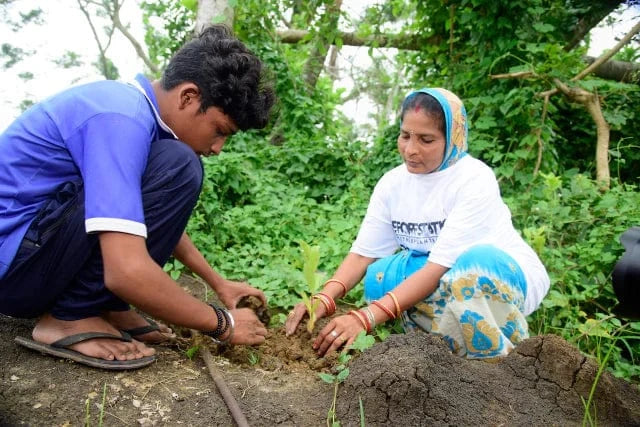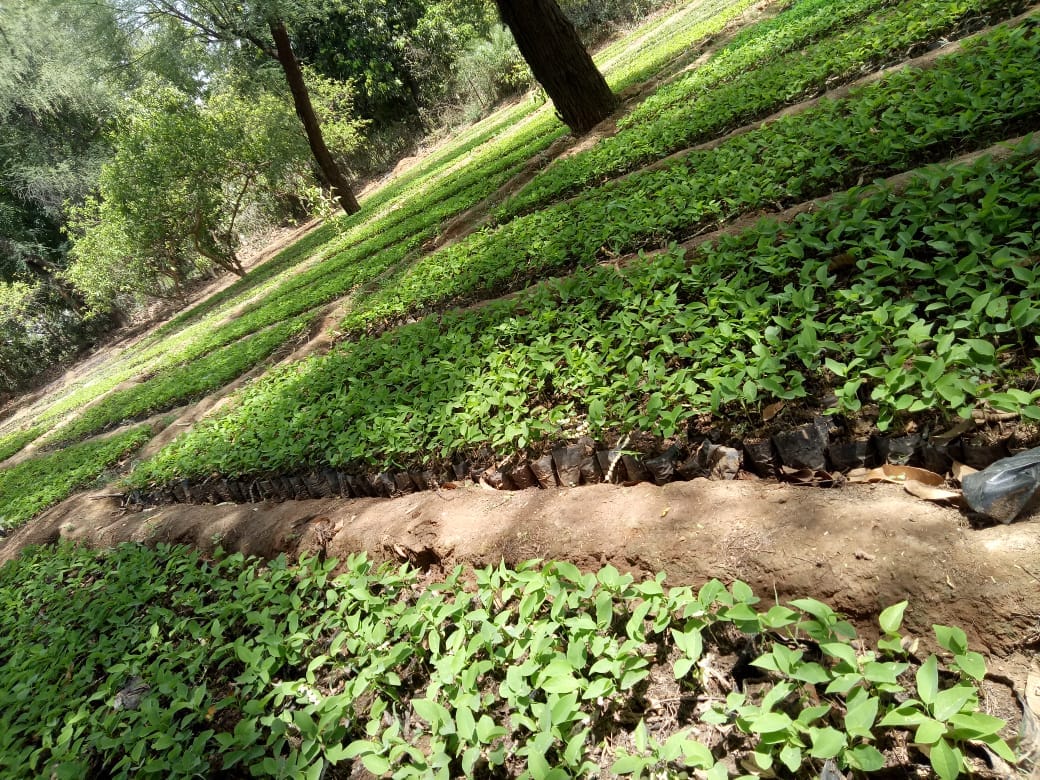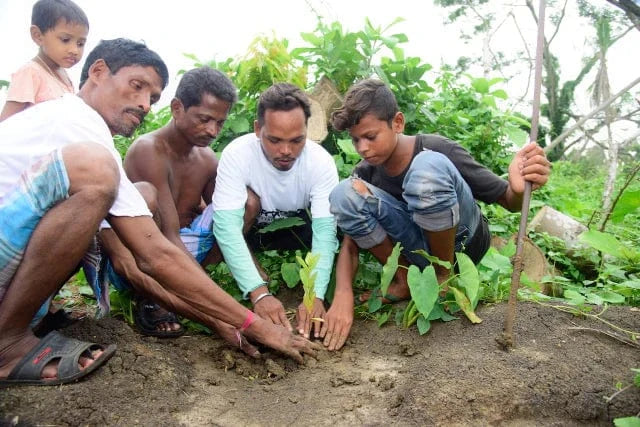Announcing 500,000 Fruit Trees Reforestation Project in India

Click here to support reforestation
with your company.
Get news, updates, & event Info delivered right to your inbox:
We're thrilled to announce a new 500,000 fruit trees reforestation project to combat poverty and hunger while fighting pollution and climate change in India. We're teaming up with our local partners at Sustainable Green Initiative in order to support the needs of families while creating a positive impact for the environment. Our previous project resulted in 300,000 trees planted in India, and now we're ready to do more!

The Benefits of Fruit Trees
The fruit trees will be planted in the rural Indian states of Uttar Pradesh, Haryana, and Odisha, where food scarcity has been amplified by the effects of COVID-19. At a time when many migrant laborers are returning home, planting trees in the homesteads, communities, and villages that dot these regions will help keep hunger at bay. And over time, it will create sustainable livelihoods for small farmers, changing lives and strengthening local economies.
The species we’ll focus on are: moringa, papaya, banana, lemon, guava, apricot, pear, peach, and jujubes. Moringa, papaya, and banana grow quickly and will provide food and fruit within 8-10 months of planting. Lemon, guava, apricot, pear, peach, and jujubes take a little longer (3 years) to produce fruit, but will ultimately provide a steady supply of food and income to small farmers.
“Everyone is hurting in different ways right now due to Covid-19, and we’re honored to be able to help through the simple act of planting trees. These trees will support with cleaner air, water, food, and social impact for families. It’s a humble offering that can have a ripple effect of benefit for years to come,” says Matt Hill, Chief Environmental Evangelist at One Tree Planted.

Each tree we plant will provide at least $10 USD in food and nutrition each year, with a cumulative value of 5 million dollars garnered over the next 50-60 years. As our partner says, “one can count the number of seeds in an apple, but one cannot count the number of apples in a seed!”
And while the socioeconomic benefits of this project are undeniable, let’s talk about the ecological benefits, too! India has the lowest air quality in the world, which is bad news for human health, doubly so in the face of a respiratory virus. Cue trees, which filter the air, trap pollutants, and provide thousands of pounds of breathable oxygen over their lifetimes. They also restore damaged ecosystems, improve and stabilize soil, support the water cycle, and slowly recover the vital ecosystem services that we all depend on. These benefits combine to powerfully reduce the effects of climate change.

As Kathleen Rogers, President, Earth Day Network said, “Trees not only filter the air and fight climate change — they provide food, energy and income to communities. One Tree Planted’s commitment to plant half a million fruit trees in India is admirable, especially during such trying times. To create a more sustainable future, we must all work together to come up with creative solutions. Planting trees improves our shared environment while supporting some of the communities most affected by coronavirus and climate change. We applaud the efforts of One Tree Planted.”
Reforestation will begin as early as June, 2020, just in time for World Environment Day on June 5th.
Karuna Singh, Regional Director, Asia, Earth Day Network, saw synergy between what Earth Day Network does and how One Tree Planted is also encouraging fruit tree planting. She said, “Earth Day Network has run Trees4Earth since 2016, and endeavors to distribute saplings in areas where those who are less privileged, live. Understanding that low levels of income often compel people to chop native trees for firewood, we explain to them the economic benefits of maintaining trees that bear fruit.” Ms. Singh also congratulated One tree Planted for their gesture to dedicate half a million fruit trees to those less fortunate, and said,“I wish other organizations would follow their example.”
Click here to support reforestation
with your company.
Get news, updates, & event Info delivered right to your inbox:
Related Posts
One Tree Planted Honored as a Multi-Award Winner for the 5th Annual Anthem Awards
09/12/2025 by One Tree Planted
One Tree Planted Receives FAO Global Technical Recognition for Its Work in Sustainable Forest Production and Protection
09/12/2025 by One Tree Planted
1 Million Trees Planted in First Phase of Australia Landscape Resilience Project
14/02/2025 by One Tree Planted
Popular On One Tree Planted
One Tree Planted Partners with Vets to Drones and Carolina Drone Lab
27/01/2023 by Meaghan Weeden
2022 Impact: 52 Million Trees Planted Across the Globe
17/01/2023 by Meaghan Weeden
Fundraising Disclosures

Be Part of the Restoration Movement
The Grove is more than just a monthly giving program: it's a vibrant community of individuals who are dedicated to reforestation and environmental restoration on a global scale.





